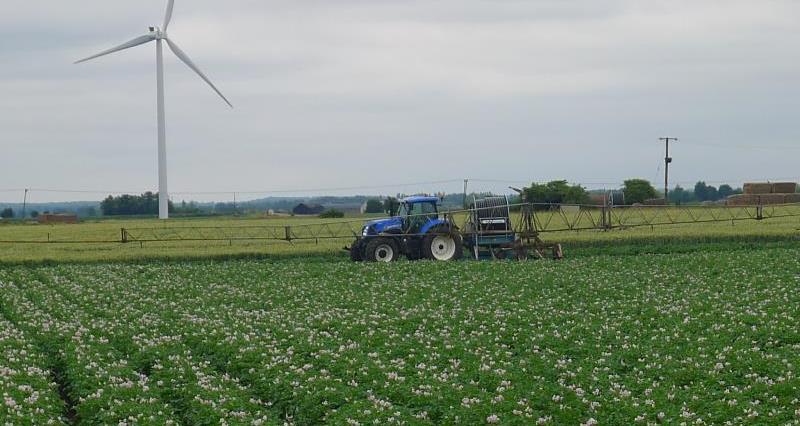It was discovered during routine testing of rivers by the Animal and Plant Health Agency (APHA) during 2016. A more extensive survey in 2017 detected the organism in two additional drains in the drainage district. Another extensive survey of the Middle Level system will be carried out in 2018.
NFU members can read the APHA letter sent to relevant local potato growers, which describes the areas where Ralstonia has been found. (You will be asked to log in.)
The APHA has imposed restrictions at specified locations which mean that the irrigation and spraying of potato and tomato crops is only possible using an approved method, such as winter abstraction and storage, or water treatment.
Defra is also advising growers in the vicinity of the affected watercourses to take equivalent measures to those described above on a precautionary basis.
Growers across the area have been advised of best practice options and reminded of the consequences if brown rot is detected in a potato crop.
Good practice in these areas includes avoiding the use of farm saved seed potatoes, groundkeeper control, significant rotations and avoiding water abstraction, or employing one of the approved irrigation techniques.
Growers in the area fall within the Cambridgeshire Fens LEADER area, where grant funding is available for water management and water treatment projects. Further information on grant funding in the Middle Level is available by emailing Kieran Carr at Cambridgeshire Acre.
Further APHA surveillance will include potato crops in these areas and the discovery of brown rot will result in statutory restrictions being applied.
